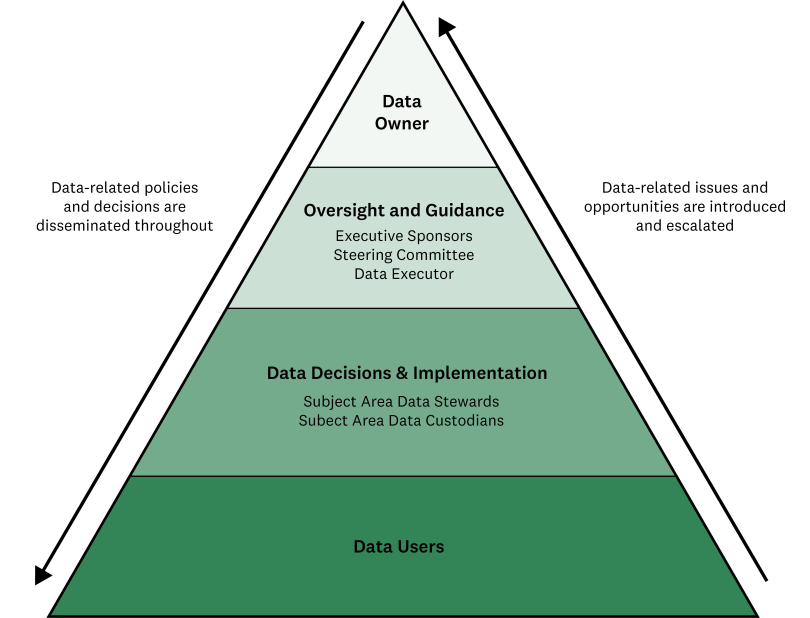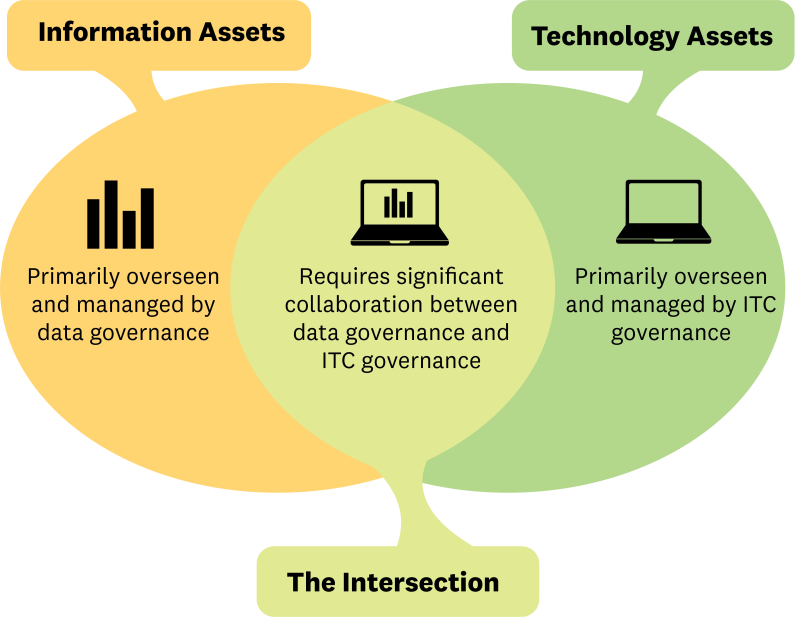Roles Pyramid
Data Users convey concerns about data-related issues and the feedback is escalated to senior leaders. Senior leaders ensure that the data governance structure is appropriate and operating effectively.
roles_pyramid_1.png

There are seven formal roles for Data Governance at Dartmouth that govern the management of, access to, and accountability for institutional data. These roles define who at Dartmouth is responsible for which data governance activity. The role structure below illustrates that data governance is a collaborative effort by business units across the college including Information, Technology and Consulting.
Data Users convey concerns about data-related issues and the feedback is escalated to senior leaders. Senior leaders ensure that the data governance structure is appropriate and operating effectively.

Data governance authority ultimately rests with the college - the "Trustees of Dartmouth College".
Executive Sponsors ensure that an appropriate data governance structure is in place and operating effectively. They ensure that the Data Governance program is supported by other Dartmouth leaders and serve as escalation point for issues related to data governance.
Senior college officials or their designees who have planning, prioritization, communication, decision-making and policy-level responsibility for governance of institutional data in accordance with stated policies.
The Steering Committee's charge is to champion, monitor, and ensure the development and success of data governance at Dartmouth College.
Appointed senior college administrator with significant interaction with multiple institutional systems/applications serving as an authoritative source of data relied upon by the campus community
The Data Executor's accountabilities include ensuring the integrity and usefulness of Dartmouth's institutional data.
College officials who have responsibility for the management of institutional data in a given source system, and have authority to grant access to data for their functional area, generally associate deans, associate vice presidents, or directors
Data stewards at Dartmouth protect the confidentiality, integrity, and accessibility of institutional data. They develop standard definitions for data elements created within their area. Data stewards are responsible for articulating procedures for individuals to request access to data that are within the data steward's functional area, and, responding to requests for access to those data.
College officials responsible for day-to-day operational data collection and management, generally managers of data systems or senior data analysts within business units
Data custodians have functional knowledge of data reported from and used within their business unit and ensure data are used consistently across Dartmouth. They provide user support in the use of institutional data and prevent unauthorized use.
Individuals who have been granted access to institutional data to perform assigned duties or functions at the college
Data users are responsible for following policies and procedures on the appropriate handling and dissemination of institutional data. They champion data-driven decision-making and convey to other members of Dartmouth's data governance team any concerns about the quality of institutional data.
Information, Technology and Consulting (ITC) supports data governance but there is more to data governance than just ITC. Data governance is a collaborative effort by stakeholders across the college.
